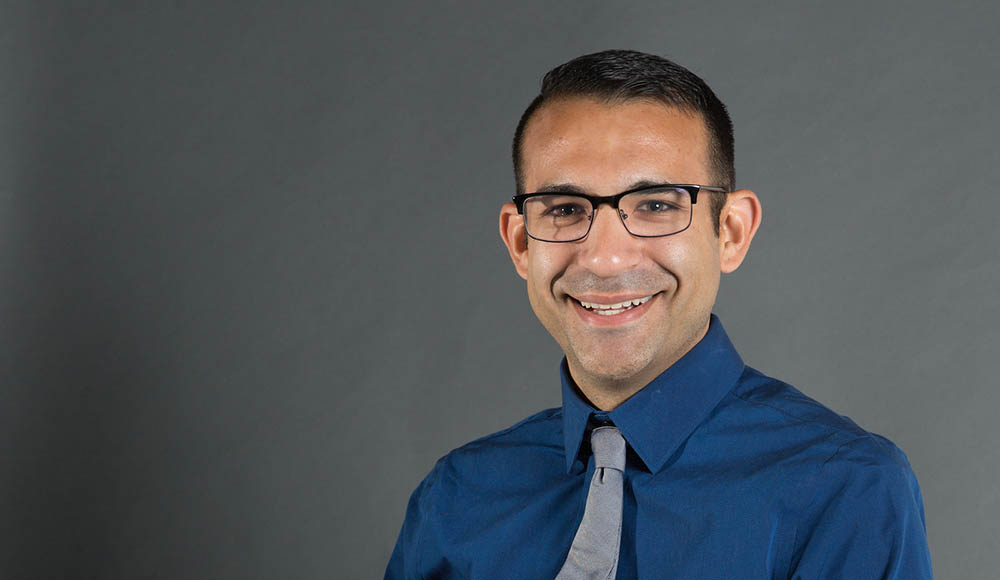Todd Raymond Avellar, Ph.D., Discusses Mindfulness and What Makes Point Park's Psy.D. Unique Thursday, July 15, 2021

"If somebody wants a program that is, 'These are the courses you take, show up, maybe a speak a little bit, do the assignment, and leave,' we’re not that program. If somebody wants a program where they get to know faculty deeply, this is for them. We’re able to give each person a unique experience."
When Professor Todd Raymond Avellar, Ph.D. was in graduate school, he felt like there was something missing in his training as a psychologist. His curiosity sparked an interest in mindfulness and Buddhism as they relate to decreasing stress, anxiety and depressive symptoms.
"I was learning all these specific techniques and protocols that are helpful to make a person feel better, but they didn't necessarily help people understand themselves and the world around them in a way I thought mindfulness could do," he said.
Avellar's interest has evolved into a significant piece in his approach to teaching and practicing psychology. He incorporates mindfulness and Buddhist frameworks into his lessons as director of clinical training in the Psy.D. in Clinical-Community Psychology program.
"What it has helped me do as a person and a professional is start to be able to see my clients, patients and students in a way that I can see their humanity more," he said. "It’s not pathological. It helps to bring in the Buddhist elements to see the person behind the symptoms. It’s all wisdom."
In the Q&A below, learn more about Avellar's approach and what makes the Psy.D. program distinctive from other universities.
What are the benefits of mindfulness and Buddhist elements in practicing psychology?
In terms in of mindfulness strategies, they are something your client or patient gets to take away with them from their session. That’s something they get to cultivate on their own. It’s a beautiful transitional object. It allows the person to leave the session, practice these strategies out in the world and come back to you.
Mindfulness allows us to sink a little bit deeper and work through the trauma and the embodied experience one goes through in their life. Through that deepening of visiting difficult emotions, you’re planting a new seed and that is what drives new thought processes and actions later on. It helps a person understand themselves in a new light.
With a Buddhist framework, it allows the person to understand their world in a new light through self-compassion. They can understand their resilience. It's not trying to make them a new person. They’re just evolving and adapting from what doesn’t work for them into what does.
How else does the Psy.D. program lean into alternative approaches to psychology?
That’s a value held by all faculty in the Psy.D. program. In many ways, our Psy.D. program is like a safe haven, a welcoming space for various theoretical orientations that are often being pushed out of western medicine. That’s so important because, especially as we look at how insurance works, insurance oftentimes draws from those orientations that have concrete, empirical science, and that’s what they choose to reimburse. For us, we’re trying to articulate and fundamentally explain how healing occurs and how important subjective experience of healing is, people’s understanding of how they change. First and foremost, that is what is most important across every faculty member's modalities and orientations.
I do Buddhist and contemplative psychology. We have faculty who talk about existentialism and phenomenological theories. We have others who are critical feminists. We each bring something different to the table. When I think about humanistic psychology, it’s very much a coat rack with all the little spokes coming out. We’re all just different spokes of a coat rack. Each student that comes in finds their home in terms of who they feel comfortable with and which approach works for them. There is diversity of training in that way.
What else makes Point Park's Psy.D. stand out from other similar programs?
We do a lot of individualized mentorship. Compared to programs across the nation, we typically have smaller cohorts. We have a cohort of 13 coming up, and that’s still pretty small when you look at the student-to-faculty ratio. We are able to give individualized attention to students.
If somebody wants a program that is, "These are the courses you take, show up, maybe a speak a little bit, do the assignment, and leave," we’re not that program. If somebody wants a program where they get to know faculty deeply, this is for them. We’re able to give each person a unique experience. Student A might come in and say they really want to work in the counseling center. Student B might want to work in in-patient. Student C might want to work in private practice. Based on what they share with our faculty, they each get a very different clinical training experience and work at very different clinical sites in the community. The diversity of sites we’re able to offer is a real perk.

